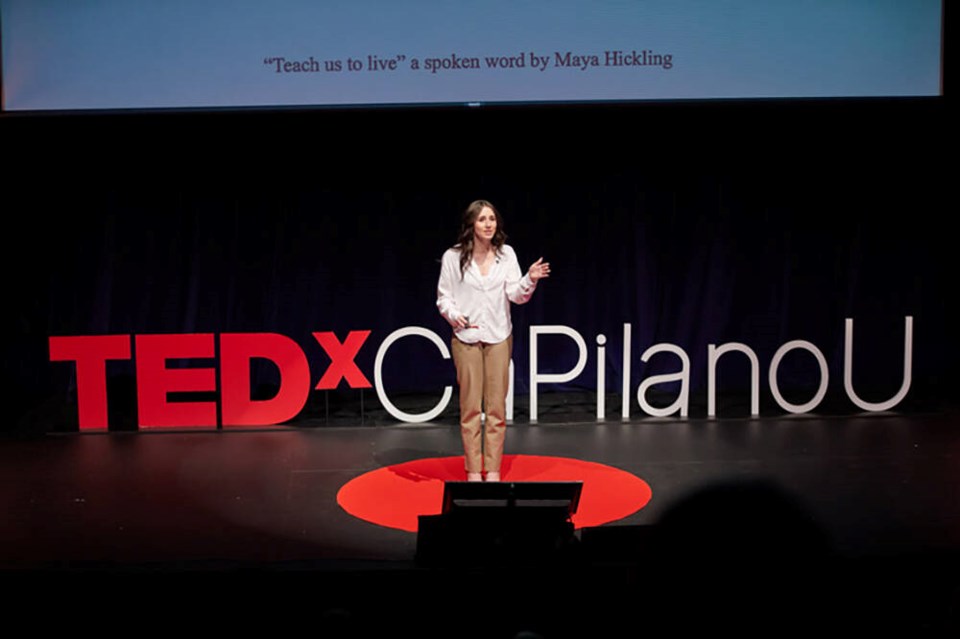Maya Hickling was only taught about mental health while she was grappling with it.
In the height of the COVID-19 pandemic, 16-year-old Hickling began struggling with anxiety, experiencing panic attacks, feeling depressed and overwhelmed with the pressures of what to do after high school.
As Hickling sat in her Grade 10 career-life education class, she was learning about how to pay a BC Hydro bill or planning for retirement, but how could Hickling begin to think about life after high school with this weight on her shoulders? Hickling hoped a conversation about mental health would come up in her class, but it never really did.
“It almost felt like a dangerous bad word. It felt like everything to describe mental health was talked about and not addressed,” Hickling said. “It frustrated me, because I can’t plan for retirement if I don’t make it to retirement.”
So Hickling began educating herself, and sought a therapist with the help of her parents. Hickling was able to overcome her challenges, but now worries for people who don’t have the finances to get the help they need.
In June, 19-year-old Hickling gave a Tedx Talk speaking of her struggles at Capilano University, where she is studying acting for theatre, film and television.
After her experience, Hickling is taking actions into her own hands by pleading for integrating mental health education in school curriculums.
Oct. 10 marks World Mental Health Day – marking awareness and global advocacy of mental health annually around the world by the World Federation for Mental Health since 1992. This year’s theme surrounds mental health at work – creating safe work environments, working conditions and work-life balance.
But labour can come in many shapes and forms, including students in the classroom.
Hickling found most high school students spend roughly 30 hours a week in school, approximately six hours a day. This means in a 180-day school year, students spend around 1,080 hours in school, with some surveys suggesting the average time spent on homework is four to five hours a week.
This doesn’t take into account working a part-time job on top, taking extra-curriculars or spending time with friends. That’s why Hickling wants to advocate for having mental health talked about more in schools and be a voice in ending the stigma surrounding it.
The B.C. government announced in 2019 investing $8.9 million to boost mental health supports until 2022. But students like Hickling aren’t seeing the benefits of that funding, she said.
Hickling has been looking deeper into the school curriculum by researching and talking to different people in the community, and filling in the gaps on how mental health can be more ingrained into high school education systems.
She has had conversations with people from her high school, but also Bowinn Ma, MLA for North Vancouver-Lonsdale, on how to go about this advocate work.
“The biggest thing that I’m doing is just being open and talking about it,” Hickling said. “It currently is just me and my networking to try and find a way within schools.”
Stigma around mental health is a massive crisis, and people don’t realize how many lives we are losing toward mental health, said Hickling. The World Health Organization estimates one person dies by suicide every 40 seconds.
Hickling continues working on ways to advocate for better mental health resources. She says that posting online to share stories and knowledge and watching shows or movies that talk about mental health are great ways in trying to end the stigma.
“For something to be so universal yet so not addressed, doesn’t make sense,” she said. “It’s a need to normalize conversations, normalize getting help.”
Abby Luciano is the Indigenous and civic affairs reporter for the North Shore News. This reporting beat is made possible by the Local Journalism Initiative.




